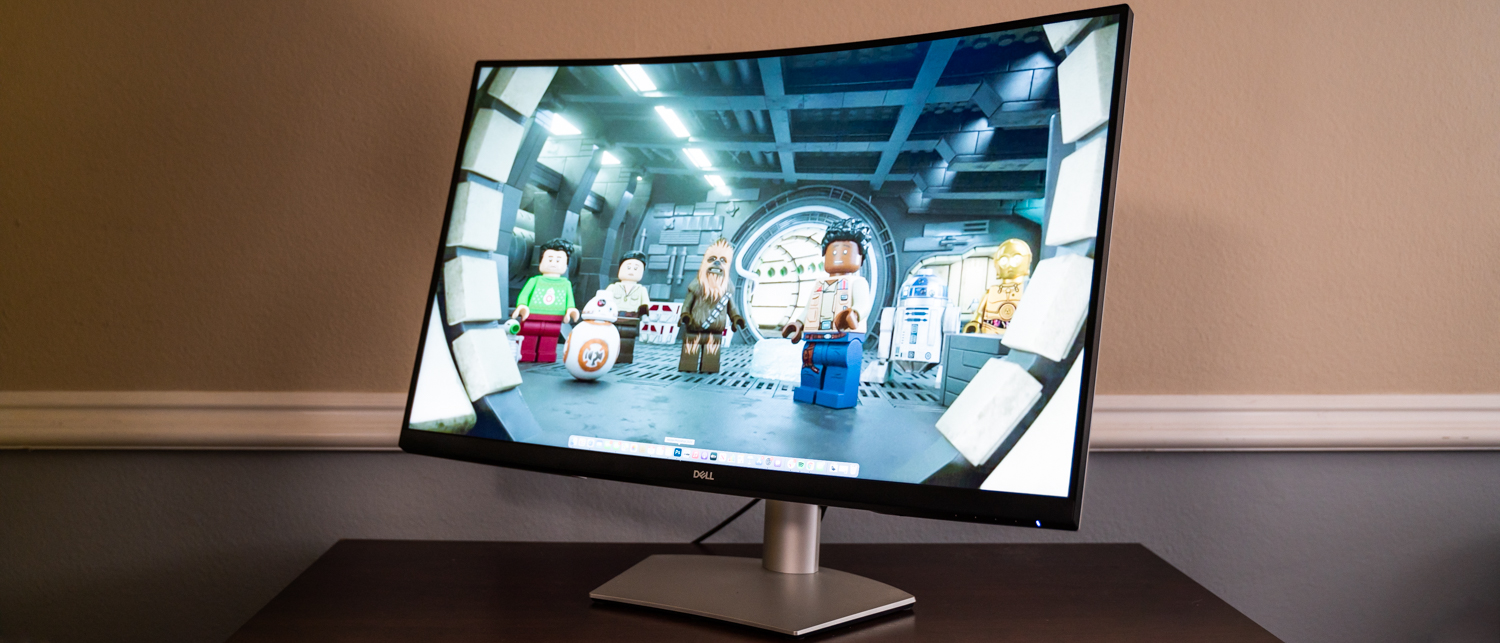TechRadar Verdict
The lack of USB-C connectivity or true HDR doesn’t stop the Dell 4K S3221QS from being a terrific curved monitor. Its elegant design, stunning 4K picture, and useful multitasking features like Picture-in-Picture make it an excellent and surprisingly affordable option.
Pros
- +
Classy design
- +
Great looking screen
- +
Unique multitasking features like PiP
- +
Affordable
Cons
- -
No USB-C
- -
Slow response rate
- -
Not true HDR
Why you can trust TechRadar
Two-minute review
The Dell 4K S3221QS curved monitor is unique among its peers. Though most displays have kept up with ever-increasing refresh rates and higher resolutions, their aesthetic has been, frankly, lacking. In fact, other than a logo or maybe some RGB lighting, most monitors could best be described as homogenous. That’s not the case with the Dell 4K S3221QS, which seems to draw inspiration from the arctic white Dell XPS.
Of course, it offers more than just a pretty design. The Dell 4K S3221QS curved monitor matches its aesthetic with a quality high-resolution panel and unique multitasking features ideal for productivity-minded users. Add in surprisingly decent built-in audio, and this display is almost perfect for any office setup.
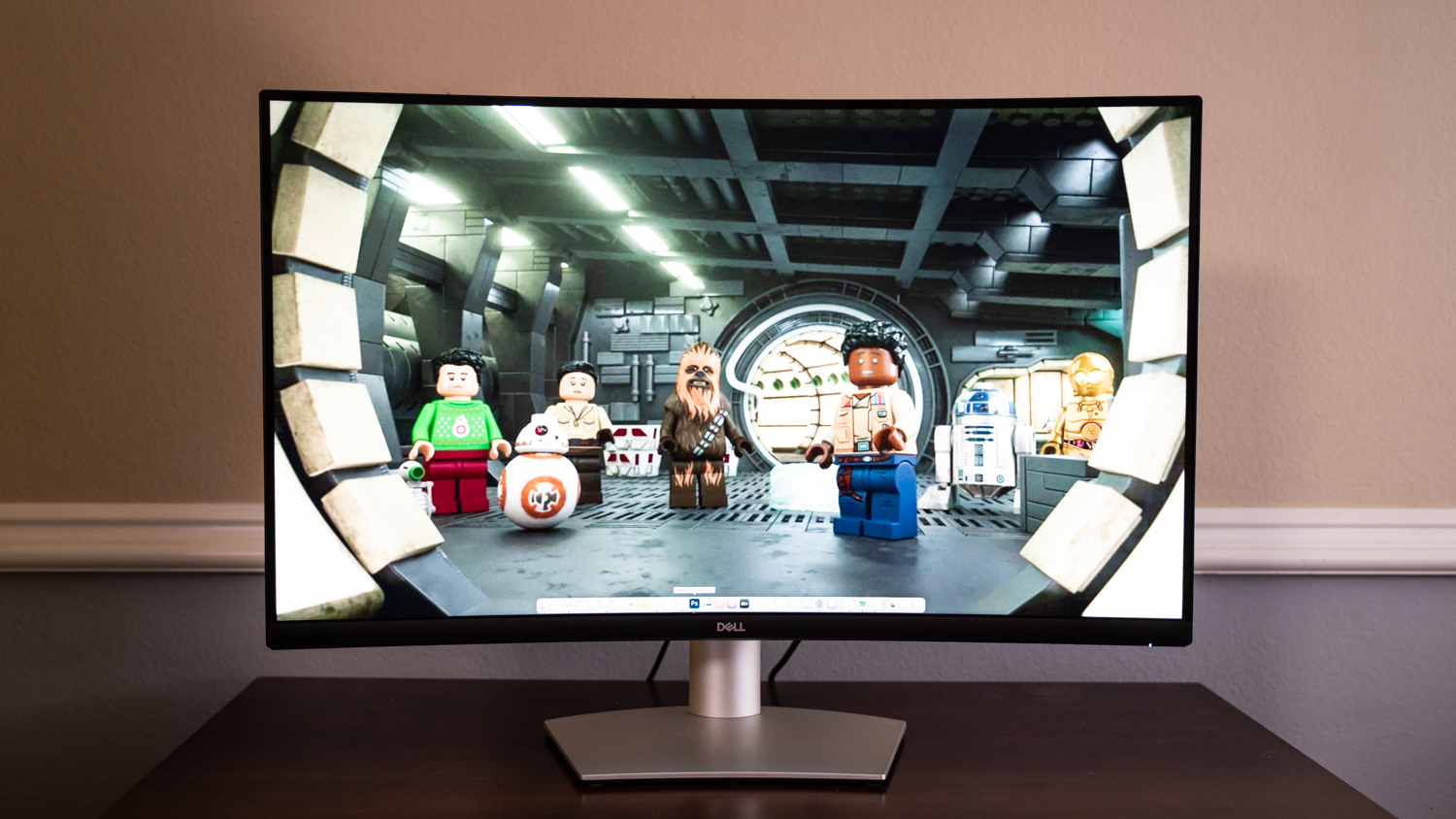
The monitor, among the best 4K monitors right now, does come with some unfortunate flaws for one seemingly aimed at working professionals. Not only is there no USB-C port, but it lacks true HDR as well. Anyone considering this for Esports will also be turned off by its slow response rate. However, if you can live without those features or your media consumption consists of movies and immersive games like Red Dead Redemption 2, you’ll find little to fault with the Dell S3221QS.
It’s reasonably priced too, setting you back $499 (£462, AU$748). While you can get the USB-C and HDR 10 equipped BenQ EW3270U at a somewhat similar price, you do miss out on the curved screen and Dell’s suite of multitasking features. Alternatively, the slightly larger AOC CU34G2X, which typically goes for $564 (£463, about AU$750), offers some great gaming-related features like a 1ms response rate and 144Hz refresh rate. However, it’s not 4K and also doesn’t have Dell's feature set. The Dell’s combination of design, performance, and features just aren’t found in other monitors at this price point.
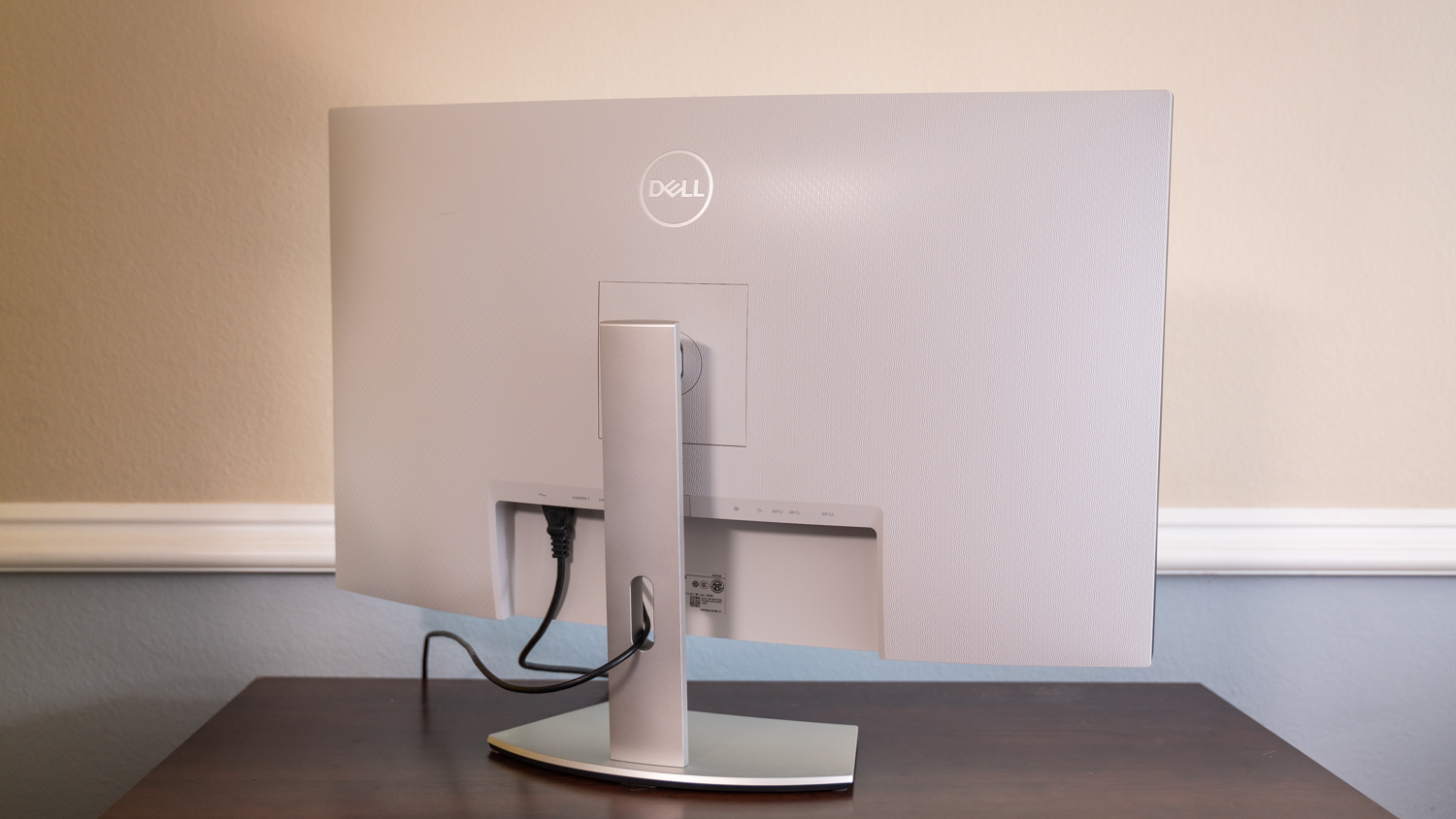
It’s obvious that Dell wanted to make something a little different with the Dell S3221QS. Sure, its bezels have that same matte black plastic that adorn every other monitor, but the similarities end there. The back panel is composed of high-quality, woven white plastic reminiscent of the arctic white found on the Dell XPS laptops. And its stand and base come in a light silver finish that matches the back panel fairly well.
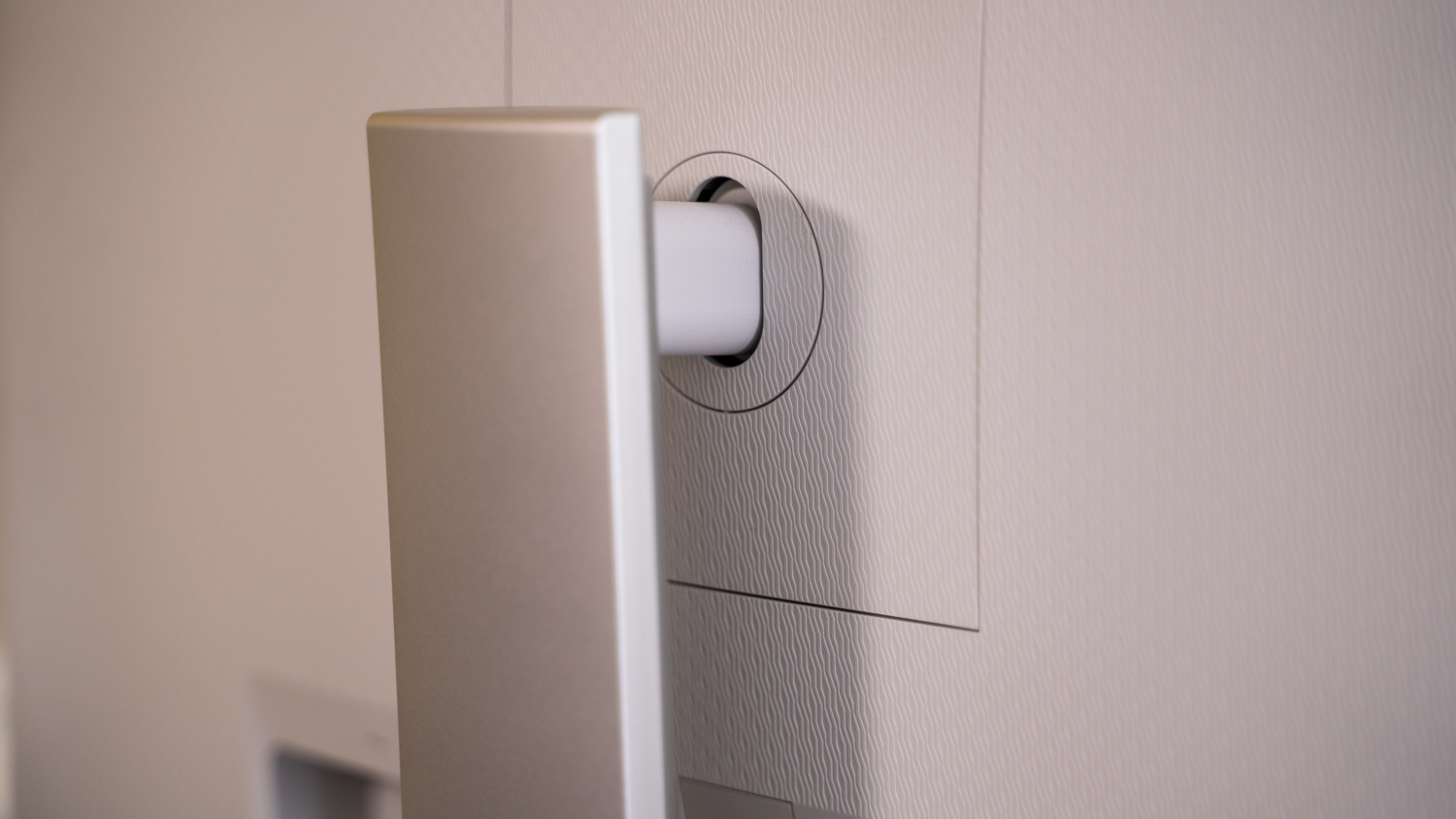
The monitor can be tilted down to -5 and up to 21 degrees, and the height can be adjusted as well. However, it can’t swivel side to side. Since the base doesn’t take up too much desk space, it’s easy to turn it if needed.
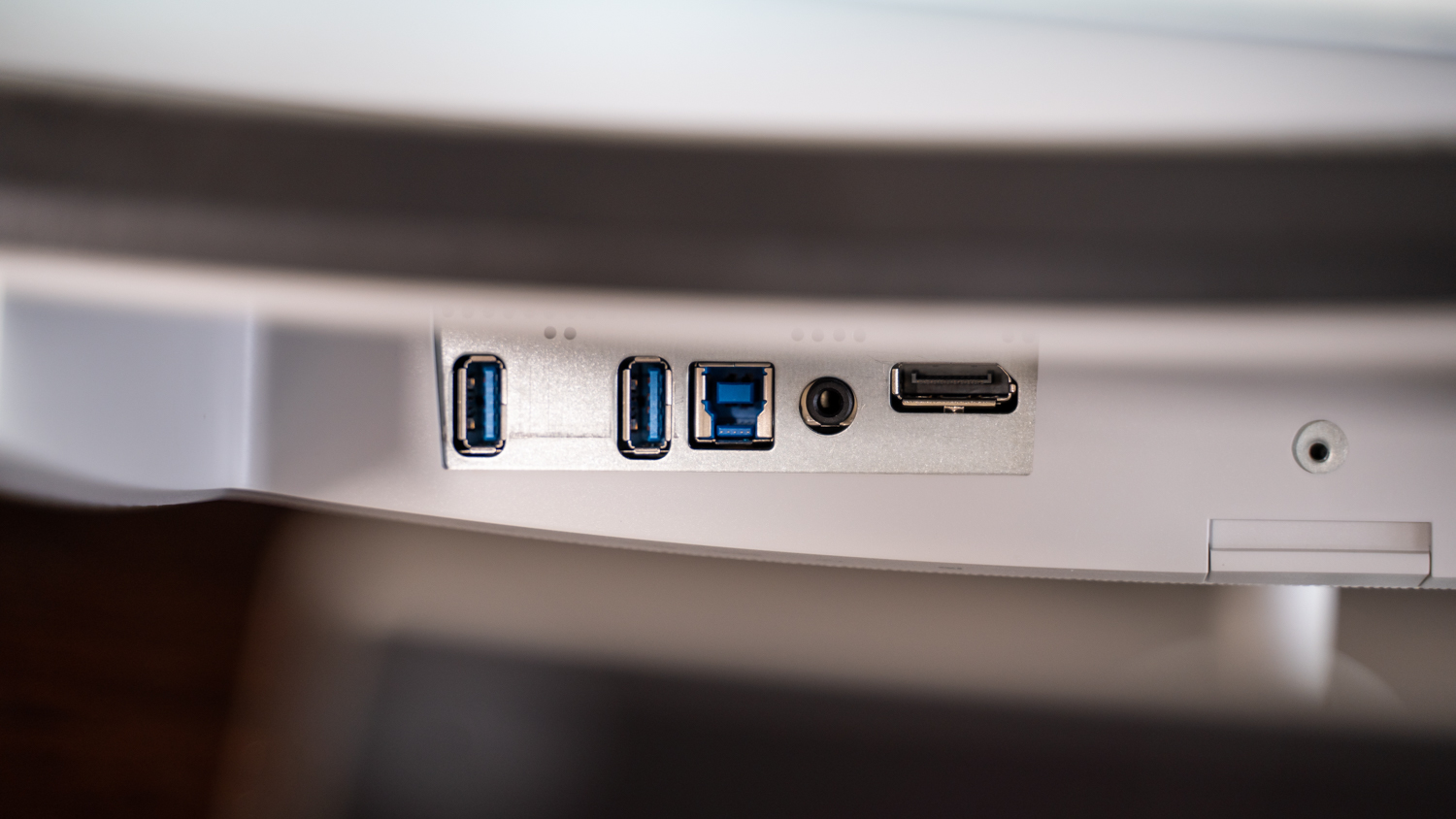
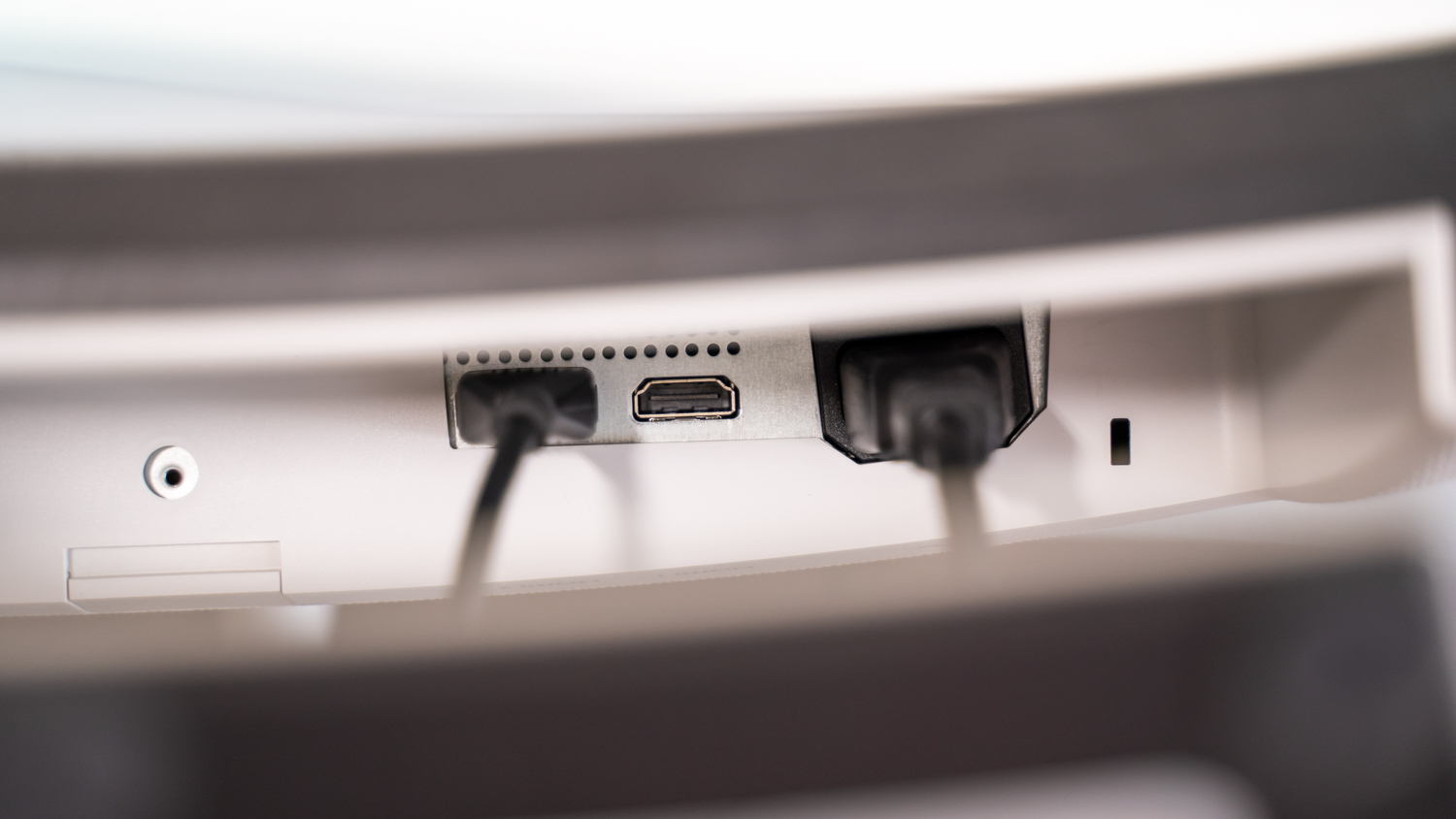
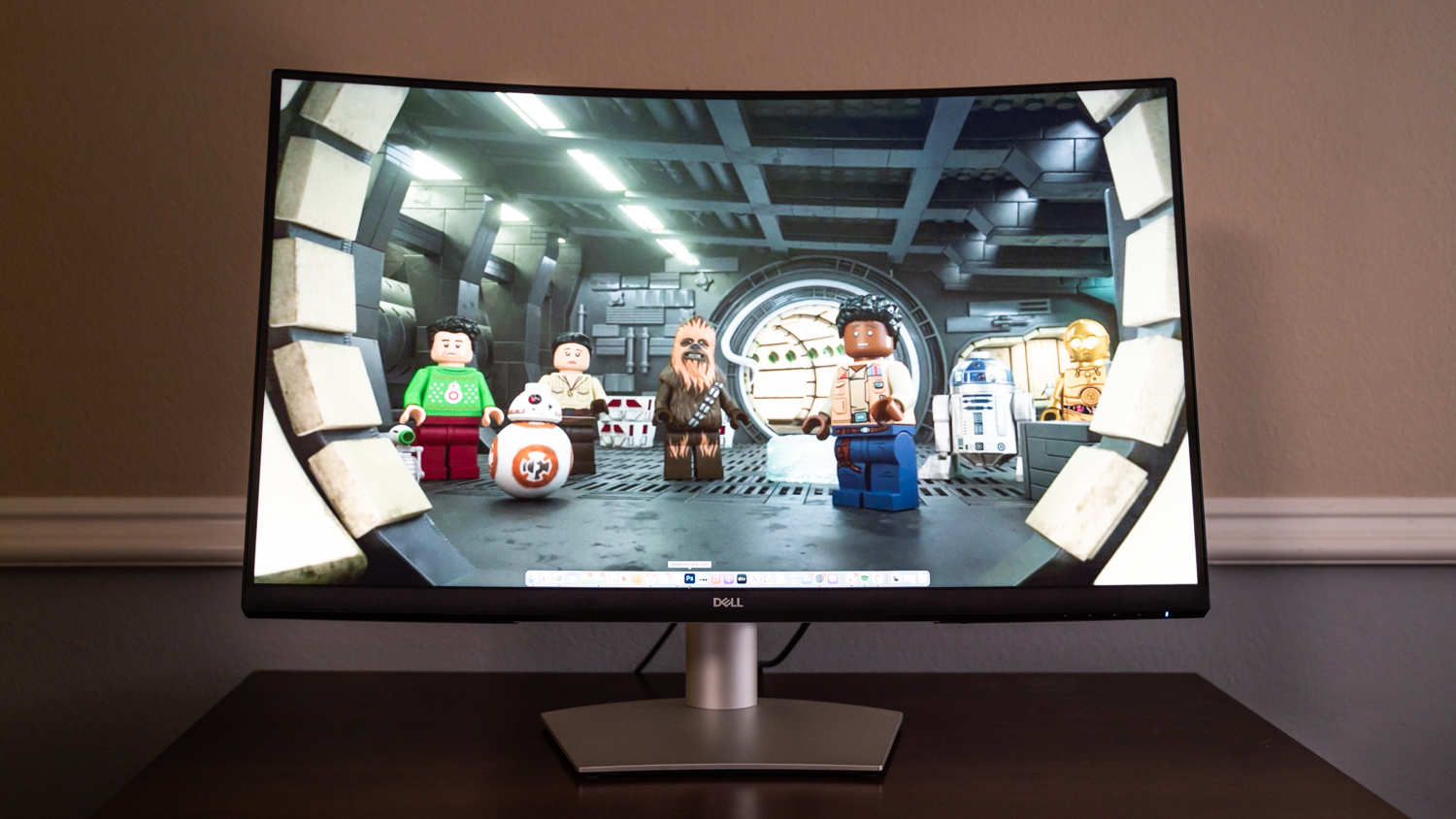
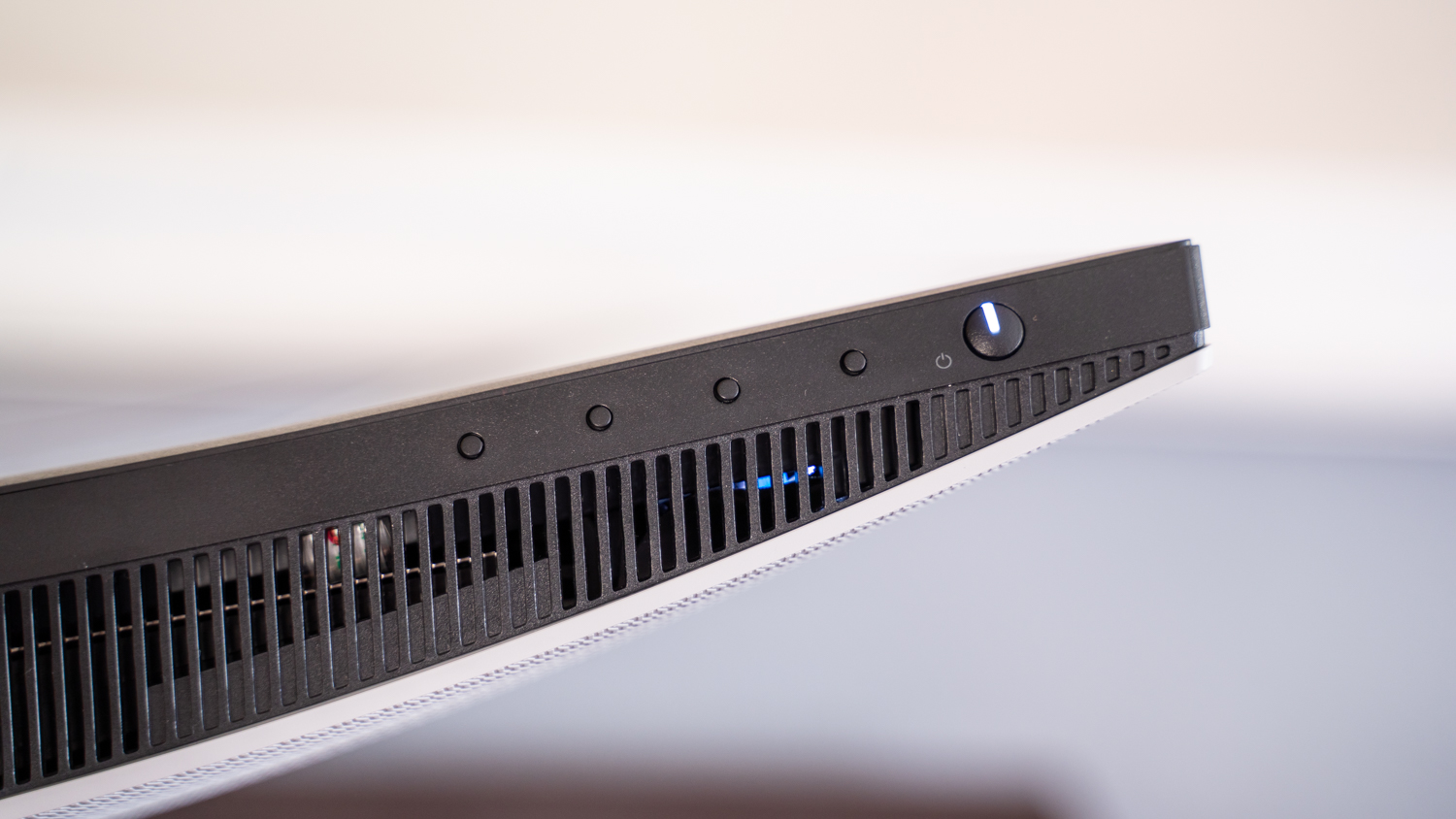
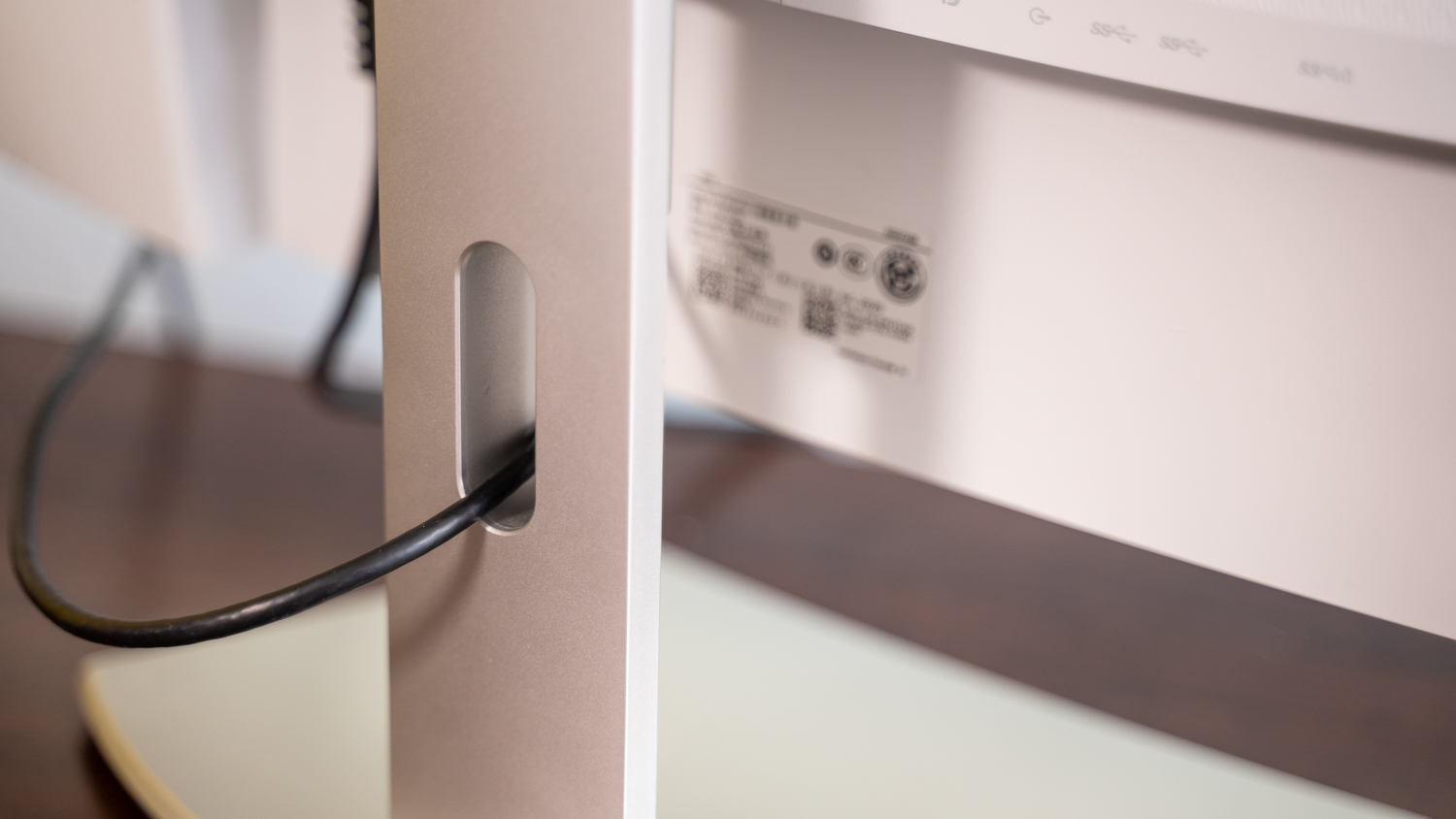
Since it is a sizable monitor, getting to the ports is not going to be easy. Not only do they sit more toward the middle of the monitor’s back panel, as the speakers sit on either end of the ports, but they’re downward-facing as well. We have to put the monitor face down every time we need access to its ports.

Speaking of ports, the selection here is decent but not amazing, with one display port and two HDMI ports available for connecting to the visual source, an audio line out, and a USB hub with two downstream ports, though only one has charging capabilities. Besides the inaccessibility of the ports, the fact that this monitor skipped on a USB-C port is a missed opportunity. Considering that Ultrabooks are as popular as they are, with Dell’s own XPS being one of the most sought after, adding a USB-C port seems like a no brainer.
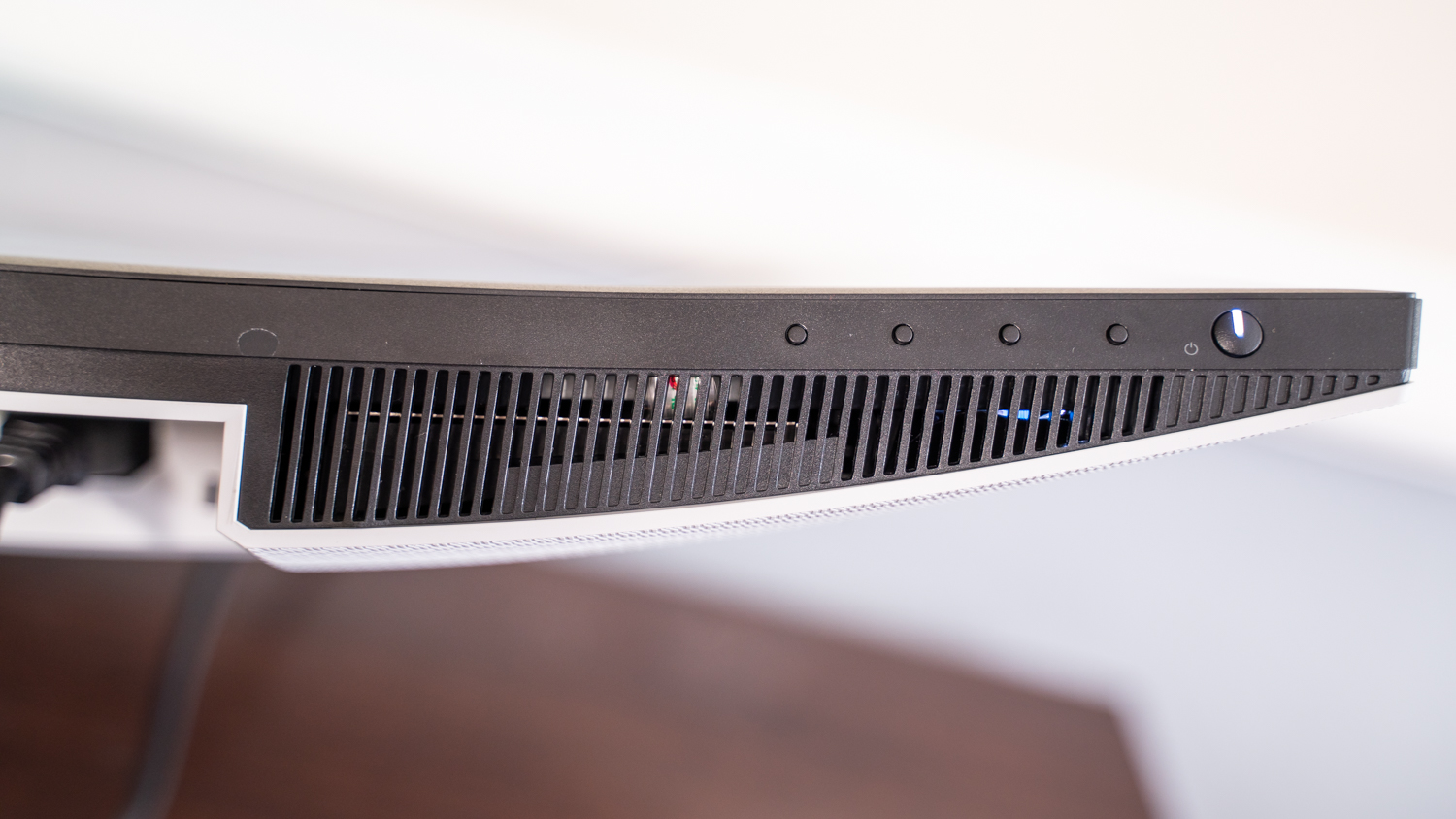
While the lack of USB-C is frustrating, the addition of decent speakers is a nice surprise. Not only does their inclusion offer a more minimal desk setup, but these speakers actually sound pretty good and offer a decent amount of volume at 5W each. Are they anywhere near audiophile quality? Of course not, but these speakers, tuned by Waves MaxxAudio, sound better than most monitor speakers and are more good enough for most people.
As far as the display itself, the 31.5” VA panel looks great, with 99% sRGB and 90% DCI-P3 color, 3000:1 contrast ratio, and of course, 4K resolution with a 60Hz refresh rate. We find the colors to be accurate and rich while the screen looks as crisp and detailed as you would expect at that resolution. Because of the 1800R curvature, even after hours of use, there’s no eye strain. It’s bright enough at 300 nits, though we’re disappointed that it didn’t also inherit the new XPS’s 500-nit brightness.
Between its 60Hz refresh rate and 8ms response rate, which can be overclocked up to 4ms, it’s not particularly fast (though this is hardly unsurprising considering it is a 4K screen.) Anyone needing a speedy display, like Esports gamers, will want to look elsewhere. For watching movies and playing games like Red Dead Redemption 2 or Metro Exodus, it performs quite nicely. While we experienced some stuttering hooked up to an RTX 3080 equipped PC, turning on V-sync mostly eliminated any performance issues, so that’s more the PC than an issue with the monitor itself.

Sadly, while Dell says this monitor supports HDR content, it only really makes the picture a bit more blue without really increasing the dynamic range. This isn’t a surprise, however, as It’s not Vesa-certified DisplayHDR and doesn’t come with an in-house rating. If you care about HDR, you’ll want to look elsewhere.
Luckily, the Dell 4K S3221QS’s multitasking features more than redeem its other miscues. Whether it’s being able to use Picture-in-Picture and Picture-by-Picture to view visual information from two different computer sources or having its EasyArrange mode to organize and snap all your tabs and apps into place and in up to 38 configurations, these features are serious boons for anyone needing to streamline their digital workflow.
The EasyArrange feature is accessible via the downloadable Dell Display Manager app, which also lets you fine tune your monitor usage by letting you automatically change the screen preset mode (for games, movies, etc.) depending on which app you’re using. It also allows you to create shortcut keys for PIP and PBP. You can’t control all your monitor settings through the app unfortunately – a feature that we’ve appreciated on other monitors we tested in the past.
With that said, the Dell 4K S3221QS is an excellent monitor that looks great, offers a detailed and rich 4K screen with some very useful multitasking features. While it does have a few missteps, you get a lot of monitor for the price of entry.
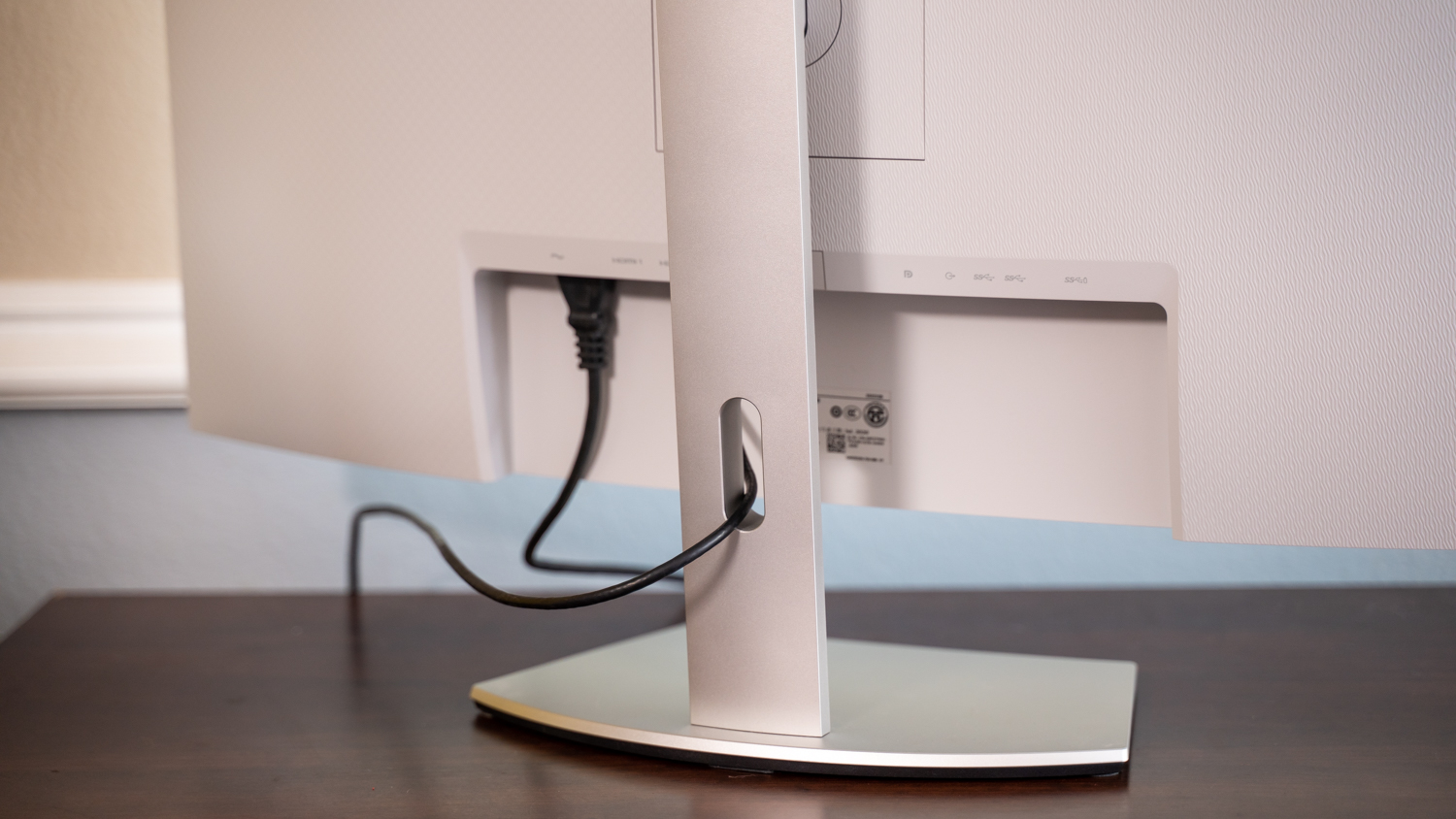
Buy it if…
You want a monitor that looks gorgeous inside and out
Not only does the Dell 4K S3221QS offer excellent image quality, but it’s a great looking peripheral as well.
You need additional multitasking features for your workflow
Not only are you able to view two different computers at once through PiP and PbP, but you’re able to use the EasyArrange feature to help organize all your apps and tabs.
You’re looking for an affordable 4K curved monitor
The price of entry for the Dell is hard to match. Paying the same for the competition either means losing the 4K resolution or going with a less immersive flat panel.
Don’t buy it if…
You want a monitor for Esports
This monitor only offers up to a 60Hz refresh rate, which is just not enough for Esports.
You are looking for a display with HDR capabilities
There are plenty of Vesa-certified DisplayHDR monitors out there for those who need this feature. This isn’t one of them.

Michelle Rae Uy is the former Computing Reviews and Buying Guides Editor at TechRadar. She's a Los Angeles-based tech, travel and lifestyle writer covering a wide range of topics, from computing to the latest in green commutes to the best hiking trails. She's an ambivert who enjoys communing with nature and traveling for months at a time just as much as watching movies and playing sim games at home. That also means that she has a lot more avenues to explore in terms of understanding how tech can improve the different aspects of our lives.
